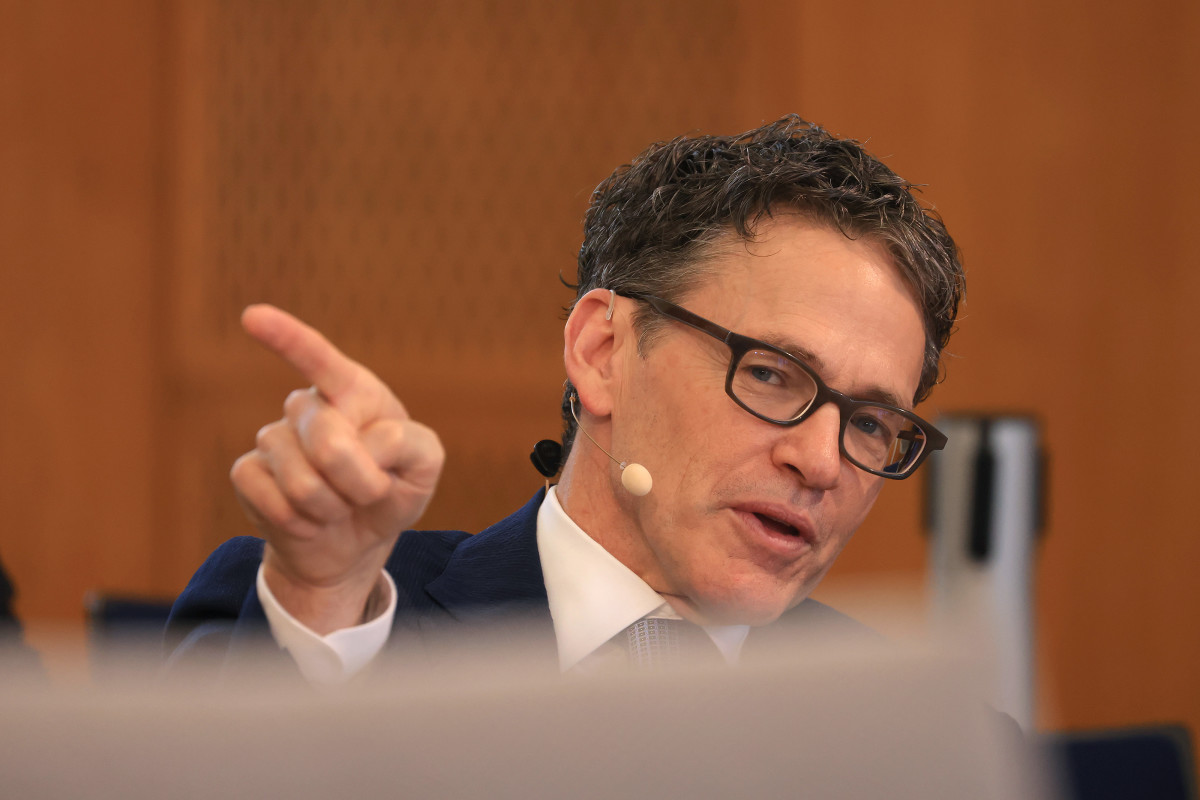
Bayer (BAYRY) CEO Bill Anderson has devised a new plan to help tackle the company’s billion-dollar debt, and it involves getting rid of all of the organization’s middle managers and granting its roughly 100,000 employees the freedom to manage themselves.
After Bayer saw a 50% decline in its stock price, compared to a year ago, and is reportedly battling €34 billion in debt (which equates to $36 billion), Anderson developed the plan in an effort to help save the company about $2 billion by 2026.
Related: BlackRock CEO Larry Fink believes 'it's a bit crazy' that baby boomers retire at 65
"People love the company; they love the sort of culture and the science and the commitment to patients, but they basically said: 'Increasingly, we can't get anything done,'" said Anderson while speaking to Business Insider in an interview earlier this month. "It's just too hard to get ideas approved, or you have to consult with so many people to make anything happen."
Bayer is also slashing its company rulebook, which is over 1,300 pages, by 99%. When announcing the change in a video, Bayer claimed that the rulebook is longer than the novel “War and Peace” and is “a lot less exciting.”
"We hire highly educated, trained people, and then we put them in these environments with rules and procedures and eight layers of hierarchy," said Anderson while speaking to Business Insider. "Then we wonder why big companies are so lame most of the time."
Under the new plan, employees will no longer have to explain to managers where and what they are spending their time on. They will instead spend time with 15 to 20 colleagues to “basically figure it out,” said Bayer U.S. President Sebastian Guth in an interview with the Wall Street Journal in March.

Thousands of managers at the company will either have their roles eliminated or see their jobs shift to workday team members.
Bayer’s move to grant its employees more freedom comes at a time when the trust employees have in their employers is declining. According to a recent survey from PwC, only 67% of U.S. employees highly trust their company’s leadership, a lower rate than what was found in 2022.
The survey also found that 72% of employees would trust the company more if their employer would allow more flexibility on when and where the work gets done.
It is no surprise that Bayer is aiming to cut costs with its new organizational plan. After acquiring biotech company Monsanto in 2018, which produces Roundup weed killer, Bayer has found itself in heavy legal trouble which has drained its pockets.
Lawsuits over Monsanto’s Roundup weed killer began piling up after multiple consumers claimed that the product caused them to develop cancer, which has cost the company billions in payouts. There are reportedly over 50,000 pending claims against the company for its Roundup products.
Related: Veteran fund manager picks favorite stocks for 2024







